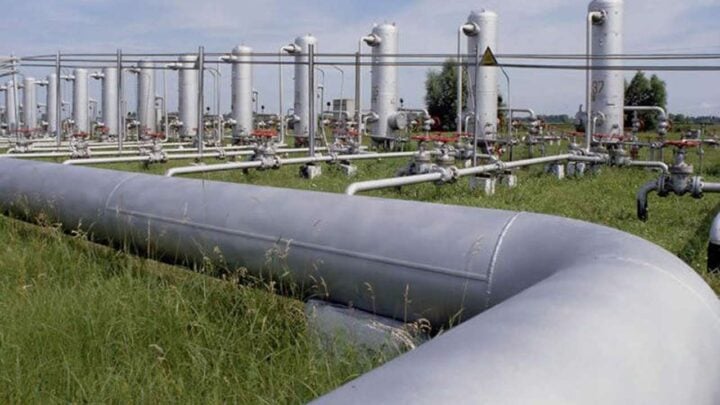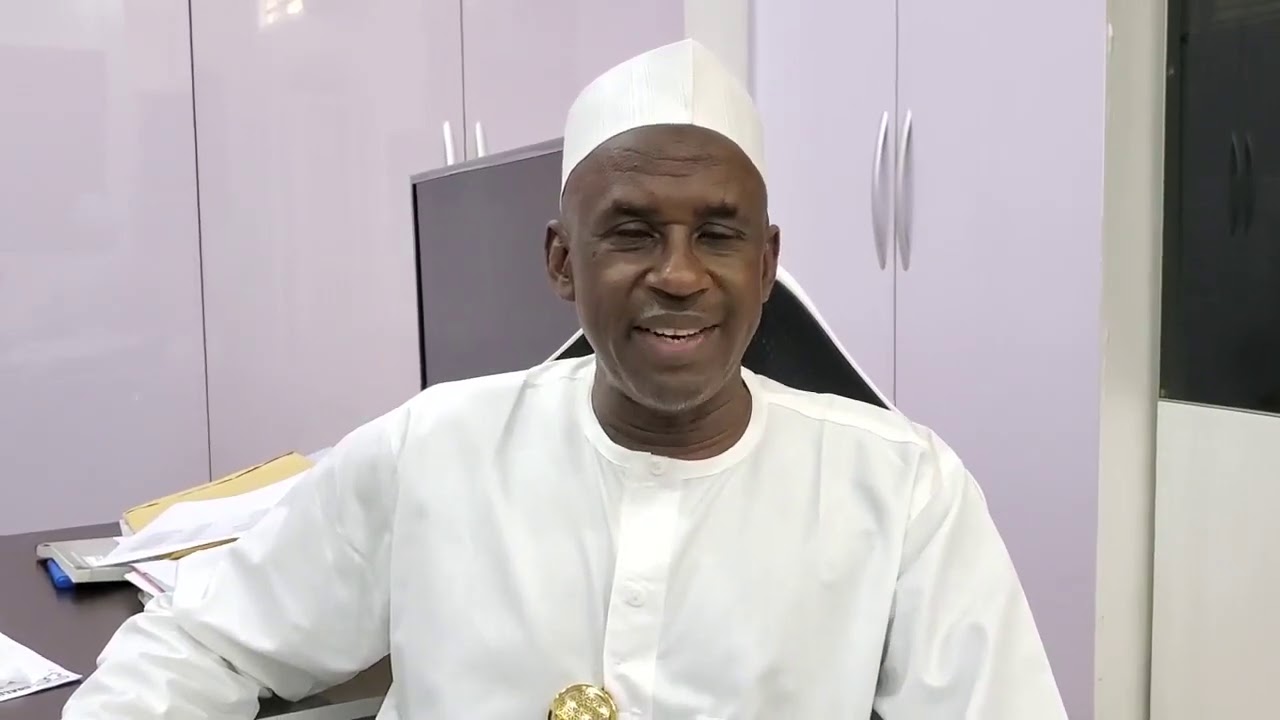The recent visit by the European Union (EU) energy platform taskforce to Nigeria’s minister of state for petroleum resources, Timipre Sylva, is a development that should be of interest and concern to policy makers in both Nigeria and the EU. For Nigeria, it is the prospect of increased foreign investment in the sector that accounts for over 80% of foreign exchange earnings and over 50% of non-debt revenue; while for the EU, it is the desire for enhanced energy security, following the outcomes of sanctions on Russian oil and gas after its invasion of Ukraine in February 2022.
To further stress the importance of this to both parties, Nigeria has been unable to find other non-debt alternatives to petroleum earnings, leading to over 300% devaluation of its currency against the US dollar in seven years, and debt servicing consuming more resources than revenue in the first half of 2022. For the EU, the prospects of gas unavailability in cold winters and the long-term nature of supply contracts is key.
The visiting EU team led by Mathew Baldwin, deputy director-general, EU energy platform taskforce, explained that the visit was in line with efforts to establish new sustainable partnerships and investments with Nigeria. The intent for sustainability is therefore what is of major interest, given the history of socio-economic events in the Delta region of Nigeria, where most of Nigeria’s energy and gas deposits are produced.
At present, Nigeria is largely unable to meet any of the new energy demands by the EU. Part of this is due to the continuous divestment by many international oil companies (IOCs), some of them of EU origin, from Nigeria’s energy sector since 2012. As six big IOCs including Shell, ConocoPhillips, TotalEnergies, ExxonMobil, Chevron and Eni decided to stop further investment in Nigeria, capital spending in the country’s oil and gas industry has significantly reduced by 70% year-on-year, from $20 billion to $6 billion per annum. This has also led to a decline in production levels from 2.6 million barrels per day (bpd) in the last 20 to 30 years, to now one million bpd. As a result, Nigeria has little or no production spare capacity despite having enormous oil and gas reserves of over 37 billion barrels and about 209 trillion cubic feet (TCF).
Advertisement
With the foregoing analysis of investment trends in Nigeria’s energy sector, the desired sustainability in energy supplies desired by the EU from Nigeria can only be achieved if the factors that led to the divestment from Nigeria by the major IOCs are assessed, and possibly resolved.
It is then appropriate to ask: What are the major factors responsible for divestment in Nigeria’s energy sector in the past few decades by IOCs?
For Nigeria’s minister of state for petroleum resources, as well as other stakeholders, it is due largely to the hostile operating environment, occasioned by oil theft. While oil theft and insecurity can be immediately identified, a historical assessment of the oil theft and insecurity phenomena shows that these activities have strong relationships with agitations for social justice by petroleum-bearing communities. The activities of the Nigerian government confirm this fact as the crude theft monitoring application software application launched by the government-owned Nigerian National Petroleum Corporation Limited (NNPCL) in August 2022 expects most of the oil-theft reporting and intelligence to be provided by people from oil-producing communities. The government has also, in the same period, re-awarded oil pipeline protection contracts to firms owned by persons with history of agitation for oil-producing communities to have some level of ownership of petroleum products. Therefore, oil theft and insecurity cannot be sustainably resolved without addressing the social justice agitations by oil-producing communities.
Advertisement
In seeking feasible approaches that can be adopted to resolve the underlining factors that can impede the sustainability of the proposed renewed energy trade relationship between Nigeria and the EU, it is important to stress that the justifications or otherwise of the agitations by petroleum-bearing communities is not the main focus of this piece but rather the need to support a sustainable approach for increased investment in Nigeria’s petroleum sector.
While the EU is pressed for new energy supply sources, the realities of emerging new energy sources and renewables also make it more imperative for Nigeria to make the most of what is probably the last golden age of oil and gas.
Aside the 70% year-on-year drop in investment due to insecurity, Nigeria has lost over $4 billion revenue in 2021 due to oil theft according to the state-owned oil corporation. If the demands for more ownership and derivation by oil-producing communities are compared to what is being spent, or lost, as security and additional costs for petroleum production in Nigeria, the business and sustainability case will recommend a new approach to doing things. While the Petroleum Industry Act (PIA) 2021 made provisions for 3% of operating expenditure of oil companies to be provided to oil-producing communities, the fact that oil companies in the area still loose over 90% of what they produce, shows that the PIA 2021 provisions are not sustainable, and should lead to new approaches for managing social agitations in the area.
What then can be done to sustainably reverse the trend of oil theft?
Advertisement
In addition to improving security through operations and exercises such as ‘Operation Dakatar Da Barawo’, the EU should become more interested in constitutional and policy efforts that will provide communities and state governments with more ownership of petroleum resources, and responsibility, in the management and production of petroleum products. Though in nominal terms, increased local ownership makes the state governments and communities wealthier, this is actually a win-win situation as increased local ownership significantly reduces the cost of doing business in Nigeria’s petroleum sector in due course thereby increasing investment, output, and ultimately creating more revenue for the federal government.
Admitted that this proposition is a sensitive issue in Nigeria, but the prevalent economic situation in several parts due to oil theft that includes revenue loss of $4 billion in 2021 alone, currency devaluation of over 200% in seven years, threats by international airlines to cease operations due to inability to repatriate earnings in foreign exchange, over 300% increase in public debt in seven years, divestment by investors, inability to meet demands from potential customers in EU and rising unemployment, among others are enough economic reasons or tipping point to necessitate a policy and legal operating review by government. The EU prides itself on virtues such as social justice and human rights and it can bring such experience to bear in its demand for a more sustainable energy trade relationship with Nigeria.
The recommendation for social justice is by no means an approval of the social, economic and environmental damages caused by oil theft. By some estimates, the environmental damage from oil theft will take over 40 years to be remedied and such actions cannot be condoned.
In adopting new approaches that grant oil producing sub-national governments and communities increased ownership, projects such as the Trans-Saharan gas pipeline, for which an MOU for construction was first signed in 2009 for completion in 2015 but was stalled due to security reasons, will stand a greater chance of success. This stalled 4,000 kilometres $13 billion gas pipeline project was conceived over 40 years ago and originates from Warri in Nigeria’s Niger-Delta, through the Ajaokuta-Kaduna-Kano (AKK) gas pipeline that should provide energy for industrial activities in other parts of Nigeria, up to Niger Republic, and ends at Hassi R’Mel in Algeria. At Algeria, the pipeline would connect to exiting pipelines to Europe, and possibly supply 30 billion cubic metres of gas annually to Europe.
Advertisement
Addressing the social justice issues surrounding ownership in Nigeria’s petroleum industry therefore becomes a foreign policy issue, given that activities in the country’s petroleum industry will affect its relationship with EU member states, alongside the fact that the proposed Trans Sahara gas pipeline will run through West and North African countries, before supplying gas to Europe.
Still on foreign policy, the recent inflation reduction act of 2022 in USA, which provides $369 billion investment for cleaner and renewable energy and is designed to reduce US carbon emission by 40% in 2030 is, to a large extent, a pointer to the declining prospects of the petroleum industry. Given the leading role that the USA plays in dictating global reforms, Nigeria should see how best to maximise what remaining value there is to make from the petroleum sector. Major oil firms such as Shell, BP and TotalEnergies now have investments in competing renewable energy sources.
Advertisement
Also, for Nigeria to hope on Asian and Eastern countries as long-term alternate markets may not be a viable proposition, as the effects of long-term sanctions and structural economic changes on Russia, which already supplies these markets petroleum products at discounted prices, means that these countries will only be interested in long term petroleum supplies, at very discounted prices.
Using the same approach cannot produce different result. The time for a change in approach by the Nigerian government in the governance of its petroleum sector is long overdue. A sustainable approach that has more community ownership of hydrocarbon resources, which ultimately makes Nigeria’s petroleum sector more secure and investment friendly for larger output, beckons.
Advertisement
Uwanaka, a policy analyst, writes through [email protected]
Advertisement
Views expressed by contributors are strictly personal and not of TheCable.
Add a comment







